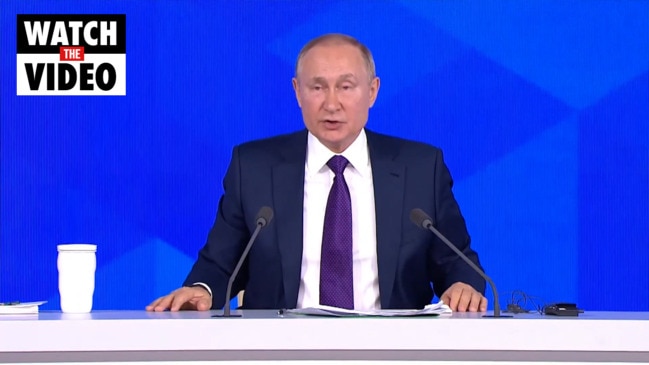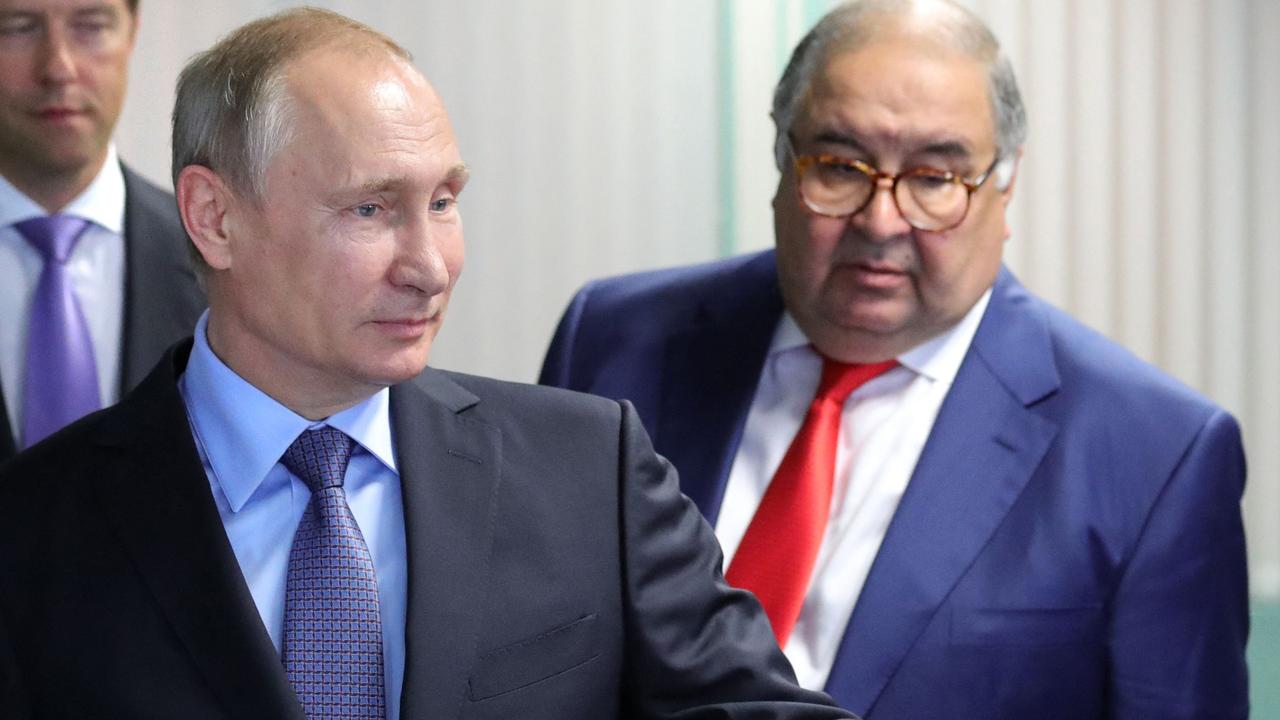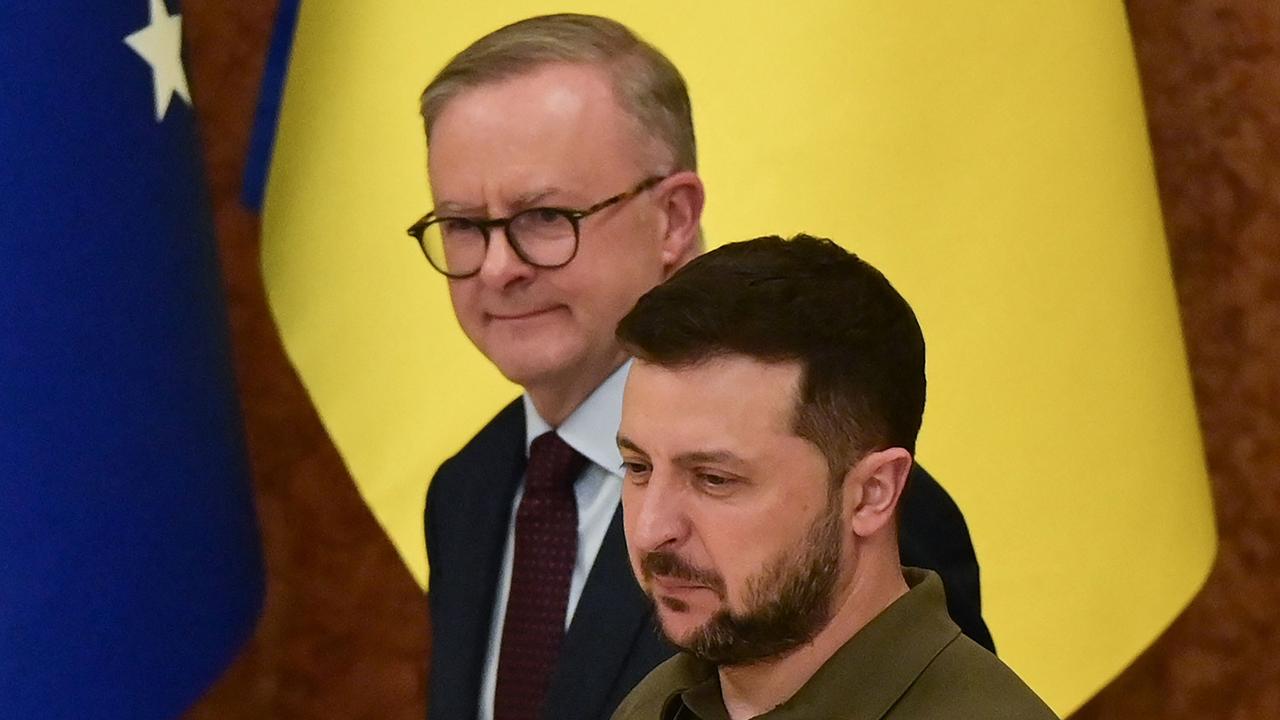Scary impact of Russia’s ‘economic war’ on Australia
Australia is already feeling the economic impact of Putin’s wrath on Ukraine and high petrol prices could just be the start.

In Australia’s relatively quiet little corner of the South Pacific things are slowly returning to normal after two years of closed international borders and Covid restrictions. But in distant lands far beyond our shores, seismic geopolitical and economic shifts are underway that will echo around world, potentially impacting Australia, significantly.
In the wake of Russia’s full scale invasion of Ukraine, the West has deployed a series of hard hitting sanctions on Moscow, targeting everything from the foreign assets of oligarchs to Russian access to the SWIFT payment system which underpins much of global trade.
In the words of EU Commission President Ursula von der Leyen: “I will now propose new measures to EU leaders to strengthen our response to Russia’s invasion of Ukraine and cripple Putin’s ability to finance his war machine.”

These sanctions may prompt a similar economically damaging response from Moscow. Earlier this month Russian Foreign Minister Sergey Lavrov held a press conference as a response to proposed British sanctions, during which he warned of a tit for tat response from Moscow.
“If this law will completely come into force, I have no doubts that our parliament will have all grounds, and it will be even necessary, to adopt an analogous law,” Lavrov said.
Going forward there will be a number of other factors that will determine the impact of the war and the following trade/diplomatic sanctions on Australia and the world.
Supply chain issues
Prior to the Russian invasion of Ukraine the world was just starting to see supply chains begin to improve, but as it becomes clear exactly how many key raw materials come from Russia and Ukraine, supply chain problems have entered a new phase.
For example, around 50 per cent of the world’s neon gas is made in Ukraine, along with 70 per cent of the world’s exports. Neon gas is an incredibly vital element in the modern world, it is used to power the lasers that etch patterns into computer chips.
With the world still struggling with a shortage of computer chips as a result of supply chain issues brought on by the pandemic, a major interruption to supplies from Ukraine could send the high tech manufacturing sector into crisis.
At the other end of the spectrum Russia and Ukraine account for 29 per cent of the world’s wheat exports, with 90 per cent of Ukraine’s flowing through four key Black Sea ports which have been targets of Moscow’s advance since the war began.
Most of #Ukraine and #Russia's grain exports originate at these 9 ports. Mykolaiv for Ukraine and Novorossiysk for Russia are the top ones.
— Karen Braun (@kannbwx) March 1, 2022
🇺🇦&🇷🇺 account for 29% of world #wheat exports, but all grain & vegetable oil shipments from both are effectively cut off right now. pic.twitter.com/x4M6HVPVNc
In recent days, shipping in the Black Sea has been subject to attack by Russian forces and this has caused delays and cancellations of exports across the region.
Russia strikes back?
By the West deploying far more damaging sanctions than Russia had anticipated, Moscow has been left reeling from the unexpectedly hard hit.
So far the Russian response has focused on foreign held assets within Russia. On Wednesday, the Russian central bank banned coupon (interest) payments to the foreign owners of rouble denominated bonds.
Dmitry Medvedev, deputy head of the Russian Security Council warned that Russia will respond to the seizure of funds from Russian residents and companies, by seizing those held by foreigners and foreign corporations within Russia.
Yet despite the escalating rhetoric from Moscow on asset seizures and a potential military clash with NATO forces, so far Russia is yet to deploy the economic weapon that most analysts expected, its ability to weaponise its energy exports (gas and oil).
Today, some French minister has said that they declared an economic war on Russia. Watch your tongue, gentlemen! And don’t forget that in human history, economic wars quite often turned into real ones
— Dmitry Medvedev (@MedvedevRussiaE) March 1, 2022
If Russian President Vladimir Putin does decide that Russia is capable of coping with the pain of limiting some of its key exports, there are other options besides energy with which he could strike back at the West with.
With broad commodity price indexes at all-time highs and pandemic driven supply issues affecting everything from aluminium to wheat, further interruptions to supply by Russian trade actions could exacerbate issues significantly.
For example, Russia is the world’s largest exporter of fertiliser, and interruptions to supplies could have a significant impact on already high prices.
Currently there is already an existing ban on Russian exports of selected types of fertiliser to keep prices affordable for Russian farmers. However, if that ban was to be extended, it could put further upward pressure on global fertiliser prices.
The Outlook
Whether driven by the direct impact of the Russian invasion of Ukraine or a potential Russian response to Western sanctions, the world’s supply chain crisis and inflation issues have become significantly more challenging in recent weeks.
In this Australia is not immune.
With oil prices recently rocketing more than 15 per cent to an eight year high of $110 US dollars a barrel, Aussie motorists are likely to feel a lot more pain at the petrol pump in the coming weeks.
On a more long term horizon, if price pressures in commodity markets persist, Australia and the world will face further broad based inflationary pressures and the RBA may face increasing calls to raise interest rates.
Nicholas Glinsman the Co-founder of Intelligence Quarterly and macro hedge fund manager perhaps summed it up best in a recent report: “The world has changed. This is no longer just about Ukraine. The land war is just one front. We are now all in an economic war.”
Tarric Brooker is a freelance journalist and social commentator | @AvidCommentator






